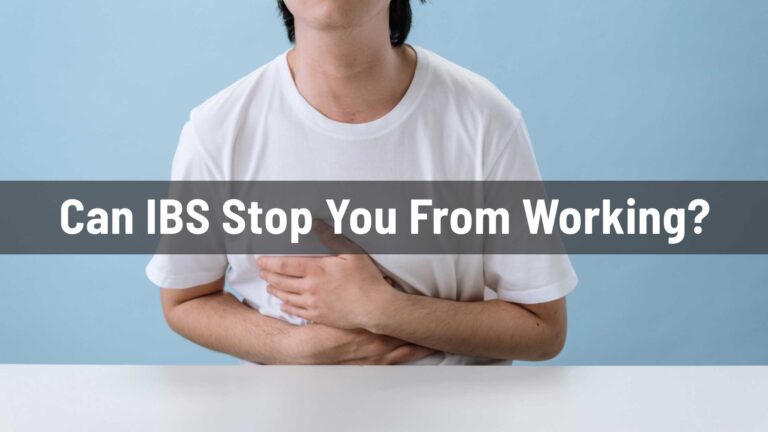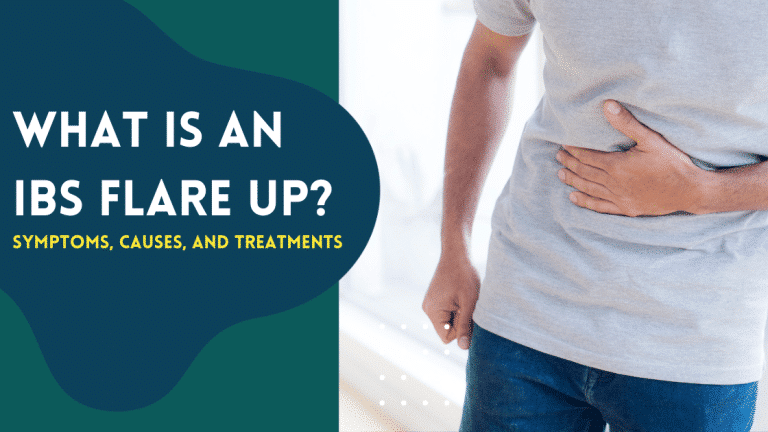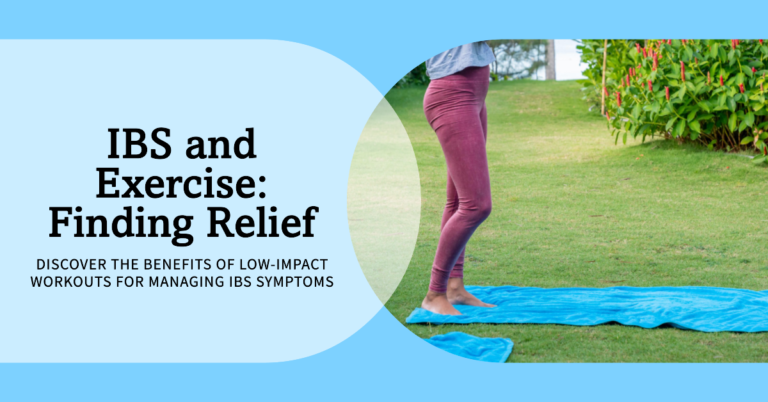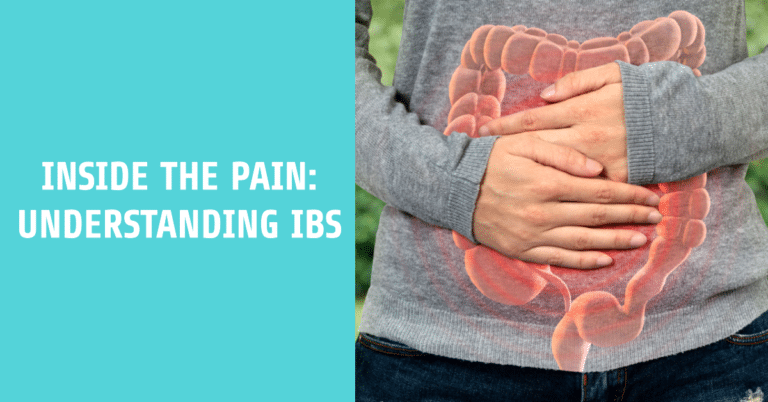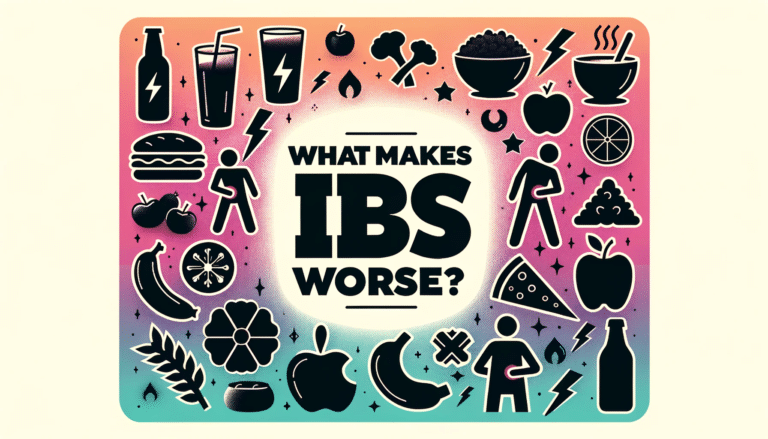What is IBS? – A Guide to Thriving With Unpredictable Flare-Ups
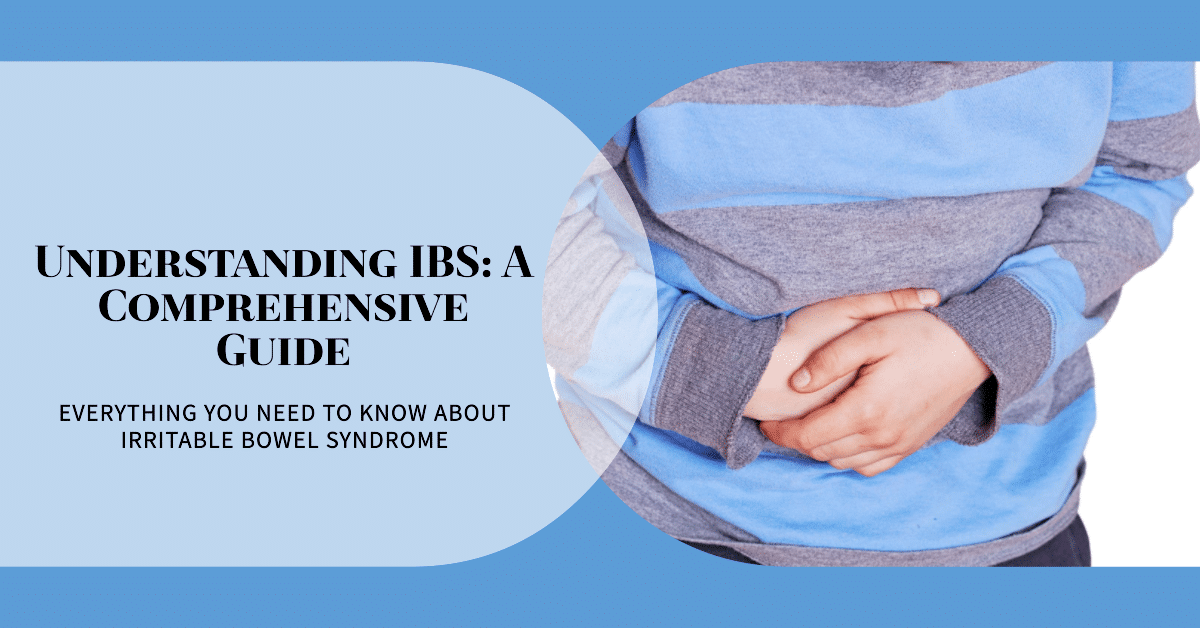
Is your digestive system moody AF? Welcome to life with irritable bowel syndrome (IBS)!
Abdominal pain, bloating, extreme diarrhea, and constipation are some ways this quirky disorder can wreak havoc. The symptoms may ebb and flow over time, leaving you confused.
But don’t stress – you’ve got options. People with IBS may look into effective treatments like dietary changes, medication, and lifestyle tweaks tailored to your type of IBS and symptoms.
Read on to learn what causes the digestive drama, how IBS differs from other conditions, and how you can regain control even when your stomach has a mind of its own.
Ready to take control after learning what is IBS? Learn what helps IBS flare ups here!
Key Takeaways
- IBS causes stomach pain, bloating, constipation and diarrhea that comes and goes [1].
- It’s a chronic problem with how the brain and gut communicate, not an infection.
- Triggers and symptoms of IBS vary widely, so finding your unique treatment mix takes trial and error.
- While frustrating, IBS can be managed well with diet, lifestyle changes, stress relief with Nerva IBS, and medications.
- Patience, self-care, and working closely with your doctor helps find an IBS treatment that works for you.
What Are the Symptoms of IBS?
Living with IBS means coping with a range of symptoms, including:
- Constipation: A frequent struggle for me, causing discomfort and frustration.
- Diarrhea: At other times, I face the opposite problem, which is equally distressing.
- Bloating: A sensation of fullness and discomfort that affects daily life.
- Abdominal Pain: Often occurs after eating and can be both debilitating and embarrassing.
Irritable Bowel Syndrome: What I Wish I Knew When I Was Diagnosed
Diagnosed with IBS in 2021, I’ve grappled with this condition and have learned so much along the way. I know firsthand how disruptive those inexplicable stomach pains and chaotic bowel habits can be.
One minute you’re fine, the next you’re making a mad dash for the restroom. It can make it hard to leave the house or ever feel comfortable. But IBS doesn’t have to run your life.
Here’s what I wish I’d known when I was first diagnosed.
Your Stomach Has a Mind of Its Own
My first clue that something was up came from my stomach’s Jekyll and Hyde routine. Some days, I couldn’t go at all and felt bloated and sluggish.
Other days, diarrhea had me camping out in the bathroom. For a long time, I thought I must have caught a stomach bug — until the symptoms kept happening, week after week.
That’s because IBS isn’t an infection — it’s a chronic problem with the way your brain and gut talk to each other.
Doctors think stress, diet, hormones, inflammation, and gut bacteria may trigger our nerves and muscles to overreact, causing cramping and bowel trouble.
The end result is a moody bowel that spasms painfully or moves erratically, even when nothing is wrong.
While incredibly annoying, IBS doesn’t actually damage your intestines or cause lasting harm. But it can make you feel awful. Finding the right treatment can help tame those temperamental bowels.
Every IBS Experience Is Different
After my diagnosis, I dove headfirst into Google, trying to find out everything I could about life with IBS.
But no two experiences were the same. Some people struggle with constipation, others diarrhea. Some cut out dairy and feel better instantly. Others change their diets and feel no difference at all.
The unpredictability used to drive me nuts. Then I realized something important — we each need to find our own path with IBS.
Your triggers and most bothersome symptoms might be totally different from mine. The best diet for you may do nothing for someone else. There’s no one-size-fits-all solution.
Working closely with your doctor and paying attention to your own body’s signals are key to finding your unique mix of diet, lifestyle changes, stress relief practices, and medications that will offer you the most relief.
It takes work to manage IBS, but you’ll get there. Don’t get discouraged if the first few things you try don’t make a difference.
Be patient with yourself and keep tweaking your treatment plan until you discover your winning formula to prevent you from triggering symptoms.
Calming Your Cranky Gut: IBS Treatment
While there’s no cure for the ‘B’, there are tons of ways to calm your cranky gut and feel better day-to-day.
Here are some weapons in your IBS treatment arsenal:
Diet changes: Figuring out and avoiding high FODMAP foods that aggravate your gut, eating smaller meals more often, and staying hydrated can make a huge difference. Things like gluten, dairy, beans, cruciferous veggies and artificial sweeteners are common IBS triggers.
Stress relief: Stress and emotions definitely impact IBS. Practices like meditation, yoga, deep breathing and counseling can help you chill out, especially during flare-ups.
Exercise: Moving your body promotes gut motility and can reduce constipation. Start slow and avoid intense workouts during flare-ups.
Meds: Medications like antispasmodics, laxatives and antidiarrheals can help ease specific symptoms.
Supplements: Some people find probiotics, peppermint oil and other natural supplements provide relief, though the evidence is mixed.
OTC remedies: Simethicone and activated charcoal can help relieve gas and bloating. I’ve found a heating pad also works wonders!
Best bet? Try different remedies and track what helps you feel your best day-to-day.
Your ideal treatment plan might involve diet changes, stress management, exercise and medications tailored to your symptoms.
FAQs About IBS
What are irritable bowel syndrome symptoms?
People with IBS have changes in their bowel movements, including repeat abdominal pain, bloating, diarrhea, constipation, or flipping between them.
IBS causes abnormal bowel movements and stool patterns. It’s a functional gastrointestinal disorder identified by this group of symptoms affecting the digestive tract.
What does IBS stand for?
IBS stands for irritable bowel syndrome. It’s also called spastic colon, nervous stomach or irritable colon. IBS leads to changes in bowel movements and discomfort.
How do doctors diagnose IBS?
To get an IBS diagnosis, doctors rule out other conditions like inflammatory bowel disease, Crohn’s disease, and ulcerative colitis. They may order tests, but your doctor may diagnose IBS based on your symptoms, not a specific test.
There are no definitive tests for IBS – it’s diagnosed by the symptoms and causes that occur together. But the first thing you’ll probably notice is changes in your bowel movements.
What causes IBS?
The exact cause of IBS is unclear, but may involve nerves and muscles in the gastrointestinal tract malfunctioning. Gut bacteria imbalances, inflammation, or triggers like stress or foods could make symptoms worse. More research on causes is needed.
Is there a cure for IBS?
There is currently no medical cure for IBS, but IBS symptoms can be managed through diet, stress management, meds, and working with your healthcare provider to find treatments. The goal is continually working to improve symptoms that occur and improve your quality of life.
How Is IBS Different from Inflammatory Bowel Disease (IBD)?
It’s crucial to understand that IBS and IBD are different. Unlike IBD, IBS doesn’t cause changes in bowel tissue, nor does it have the same risks as conditions like Crohn’s disease. Knowing these distinctions helped me navigate my diagnosis and understand my body better.
What Is IBS? – Final Thoughts
Living with IBS can be a real pain in the gut, you know? It’s like a constant rollercoaster ride that messes with your daily life.
But hey, there’s hope! Many folks out there have found relief by figuring out their own unique combo of changes.
Think a low FODMAP diet, ditching trigger foods, finding ways to chillax and manage stress, getting regular exercise, and teaming up with a trusted doc.
Now, IBS might play hide and seek with you over time, but with the right approach, you can totally manage it like a boss.
The secret sauce lies in tuning in to your body’s signals, spotting those personal triggers, keeping up the convo with your doctor, and having a boatload of patience as you navigate the treatment plan that suits you best.
Trust me, it’s all about finding that sweet spot to thrive with IBS.
With the right approach, you can minimize IBS flare-ups and feel your best.
Disclaimer: This content is based on my personal experience as an individual diagnosed with celiac disease and IBS (Irritable Bowel Syndrome) who follows a strict gluten-free diet. This does not constitute medical advice. Please consult a medical professional, nutritionist, or qualified dietitian for personalized, professional advice.

